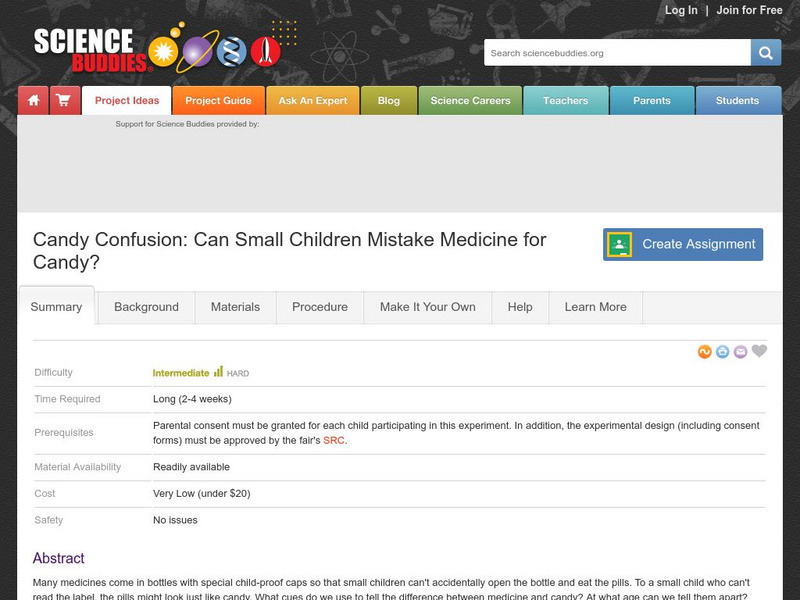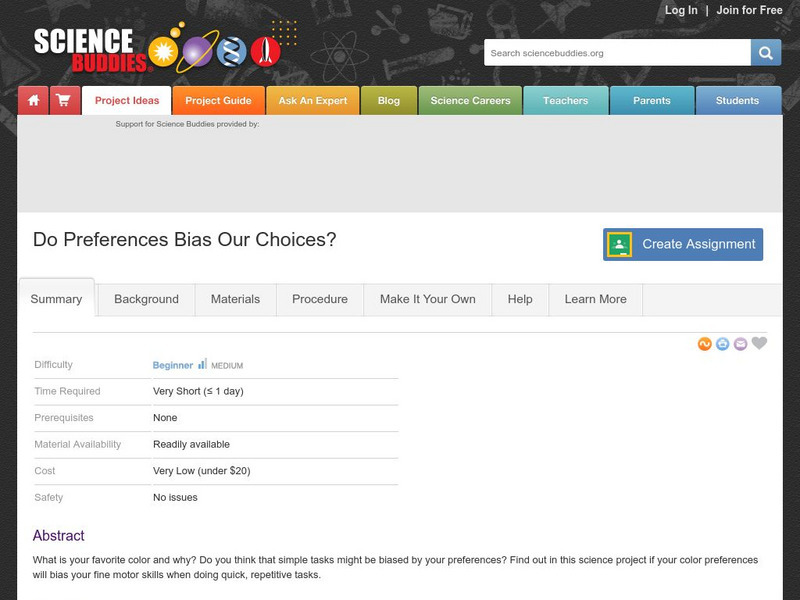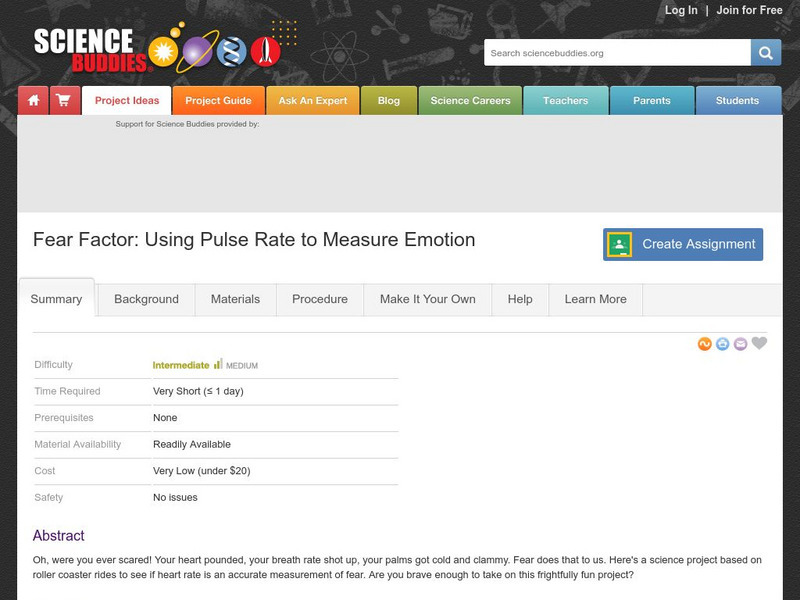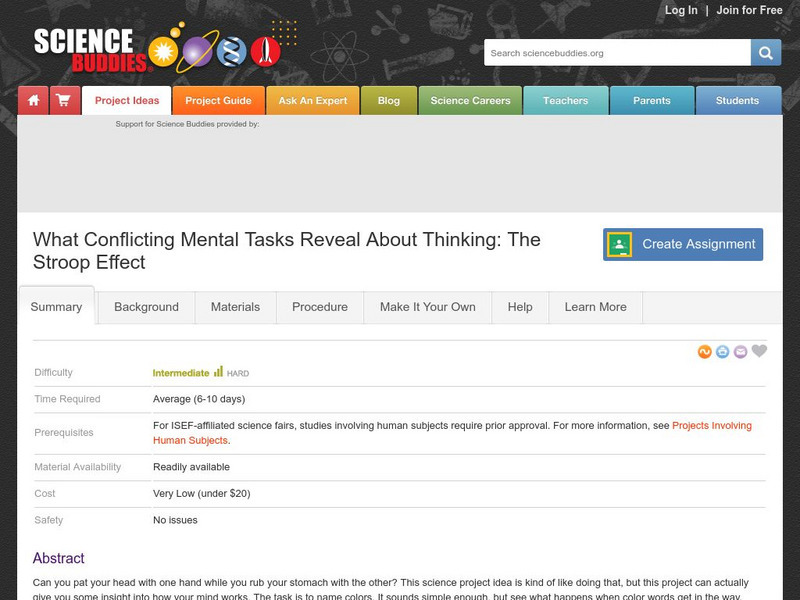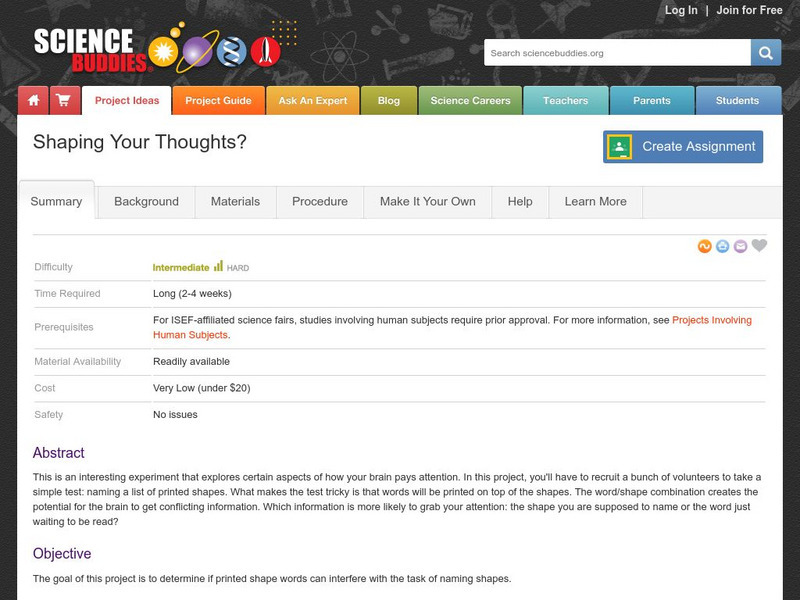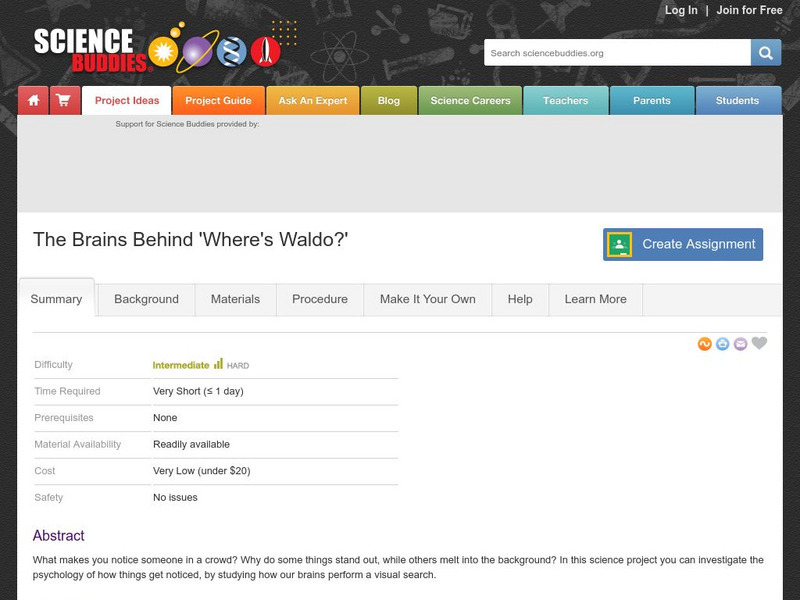TED Talks
Ted: Ted Ed: Social Animal
Tapping into the findings of his latest book, NYTimes columnist David Brooks unpacks new insights into human nature from the cognitive sciences- insights with massive implications for economics and politics as well as our own...
Famous Scientists
Famous Scientists: Alfred Kinsey
Best known for the Kinsey Reports, find out about the life and work of Alfred Kinsey. Discover how he was led to study human sexuality.
Wisc-Online
Wisc Online: Psychology: Brain & Behaviour
Test your speed in this game reviewing brain and behavior terms and concepts.
Lumen Learning
Lumen: Boundless Sociology: Theories of Socialization
Take a look at how socialization shapes and prepares humans for interactions in their culture.
TED Talks
Ted: Ted Ed: The Difference Between Classical and Operant Conditioning
Peggy Andover explains how the brain can associate unrelated stimuli and responses, proved by Ivan Pavlov's famous 1890 experiments, and how reinforcement and punishment can result in changed behavior. [4:13]
Science Museum, London
Making the Modern World: Sigmund Freud and Psychoanalysis
This article explains how Sigmund Freud developed his theory of psychoanalysis and its effect on understanding the human mind.
Science Buddies
Science Buddies: Now You See It, Now You Don't: A Chromatic Adaptation Project
This project shows that our perceptions can change, even with the stimulus remains the same. A clear color difference in an image disappears after just 20 seconds of looking at another (special) image.
Science Buddies
Science Buddies: An Experiment in Visual Perception
Graphical methods of data presentation are a key feature of scientific communication. This project will get you thinking about how to find the best way to communicate scientific information.
Science Buddies
Science Buddies: Interpreting Area Data From Maps vs. Graphs
Graphical methods of data presentation are a key feature of scientific communication. This project asks the question, "What's the best way to compare the land area of states: a map or a bar graph?" You'll be measuring performance on two...
Science Buddies
Science Buddies: Mixing Light to Make Colors
You know how to make new colors by mixing paint or crayons. For example, you get green by mixing yellow and blue, or orange by mixing red and yellow. With paint, blue, yellow, and red are primary colors, which you can use to make other...
Science Buddies
Science Buddies: What Is the Most Effective Way to Quit Smoking?
Maybe you know someone who smokes, and you want to help them to quit. They've probably already told you how hard it is to stop once a person has started smoking. This project tries to answer the question: What is the most effective way...
Science Buddies
Science Buddies: Testing the Accuracy of Eyewitness Testimony
Think back to the last time you went to the grocery store. How well can you describe the person who was ahead of you in the check-out line? How many details do you remember about the person? Here is a project to investigate the accuracy...
Science Buddies
Science Buddies: Testing for Bias in a Photo Lineup
You may have read about criminal cases where innocent people have been wrongly convicted of a crime. Sometimes, modern DNA analysis techniques have provided the evidence to exonerate these innocent people. In many cases, mistaken...
Science Buddies
Science Buddies: Candy Confusion: Can Small Children Mistake Medicine for Candy?
Many medicines come in bottles with special child-proof caps so that small children can't accidentally open the bottle and eat the pills. To a small child who can't read the label, the pills might look just like candy. This project helps...
Science Buddies
Science Buddies: Do the Eyes Have It?
Some people have a photographic memory and can memorize anything they see almost instantly. Other people can remember almost anything they hear. Try this experiment to see which type of memory you have.
Science Buddies
Science Buddies: Do Preferences Bias Our Choices?
In this science project you will test whether color preference will affect repetitive tasks that require fine motor coordination, like picking up small objects very quickly. Find out if your color preferences will bias these repetitive...
Science Buddies
Science Buddies: How Many Numbers Can You Remember?
Most people don't even remember phone numbers anymore, and instead program them into their phones. There is a limit to the number of numbers, or digits, that most people can remember. Try this experiment to test your digit span, the...
Science Buddies
Science Buddies: Multitasking: Brain Drain or Boost in Efficiency?
Think it's a good idea to plug into iTunes, surf the Web, or watch TV while doing homework or trying to read? Many people do it and claim that jumping from one activity to another keeps their attention level up and even gives their brain...
Science Buddies
Science Buddies: Fear Factor: Using Pulse Rate to Measure Emotion
Do you remember a situation when you heart pounded, your breath rate shot up, and your palms got cold and clammy? Fear does that to us. Here's a science project based on roller coaster rides to see if heart rate is an accurate...
Science Buddies
Science Buddies: The Bouba Kiki Effect
It may be possible for certain symbolic characteristics, like sharpness and roundedness, to cross language barriers. In this experiment you will investigate the Bouba-Kiki Effect to find out if abstract visual properties can be linked to...
Science Buddies
Science Buddies: What Conflicting Mental Tasks Reveal About Thinking
Can you pat your head with one hand while you rub your stomach with the other? This experiment is kind of like that, but it can actually give you some insight into how your mind works. The task is to name colors. It sounds simple enough,...
Science Buddies
Science Buddies: Shaping Your Thoughts?
This is an experiment that explores certain aspects of how your brain pays attention. In this project, you'll have to recruit volunteers to take a simple test: naming a list of printed shapes. What makes the test tricky is that words...
Science Buddies
Science Buddies: Warped Words and the Stroop Effect
The Stroop effect describes an experiment about the time it takes to name the color of printed words. When you try to name the color in which color words are printed, it takes longer when the color word differs from the ink color than...
Science Buddies
Science Buddies: The Brains Behind 'Where's Waldo?'
What makes you notice someone in a crowd? Why do some things stand out, while others melt into the background? In this experiment you can investigate the psychology of how things get noticed, by studying how our brains perform a visual...
Other popular searches
- Human Behavior Steps
- Activities Human Behavior
- Human Behavior Lab
- Human Behavior and Instincts
- Understanding Human Behavior
- Seasons Human Behavior
- Human Behavior Theorists
- Genetics and Human Behavior
- Human Behavioral Patterns













